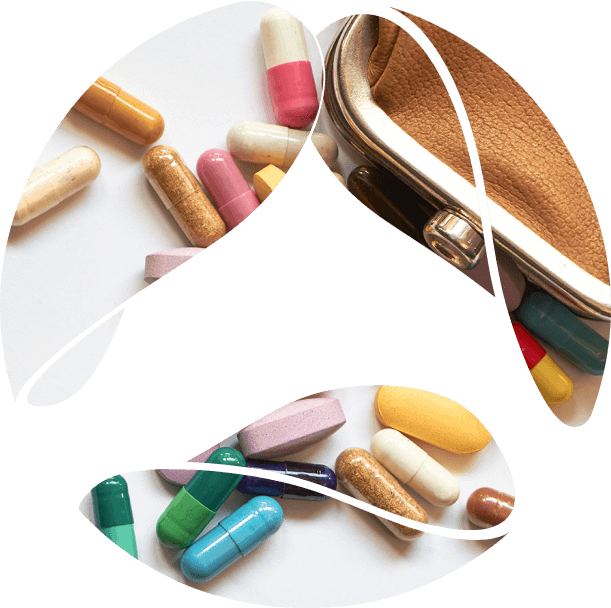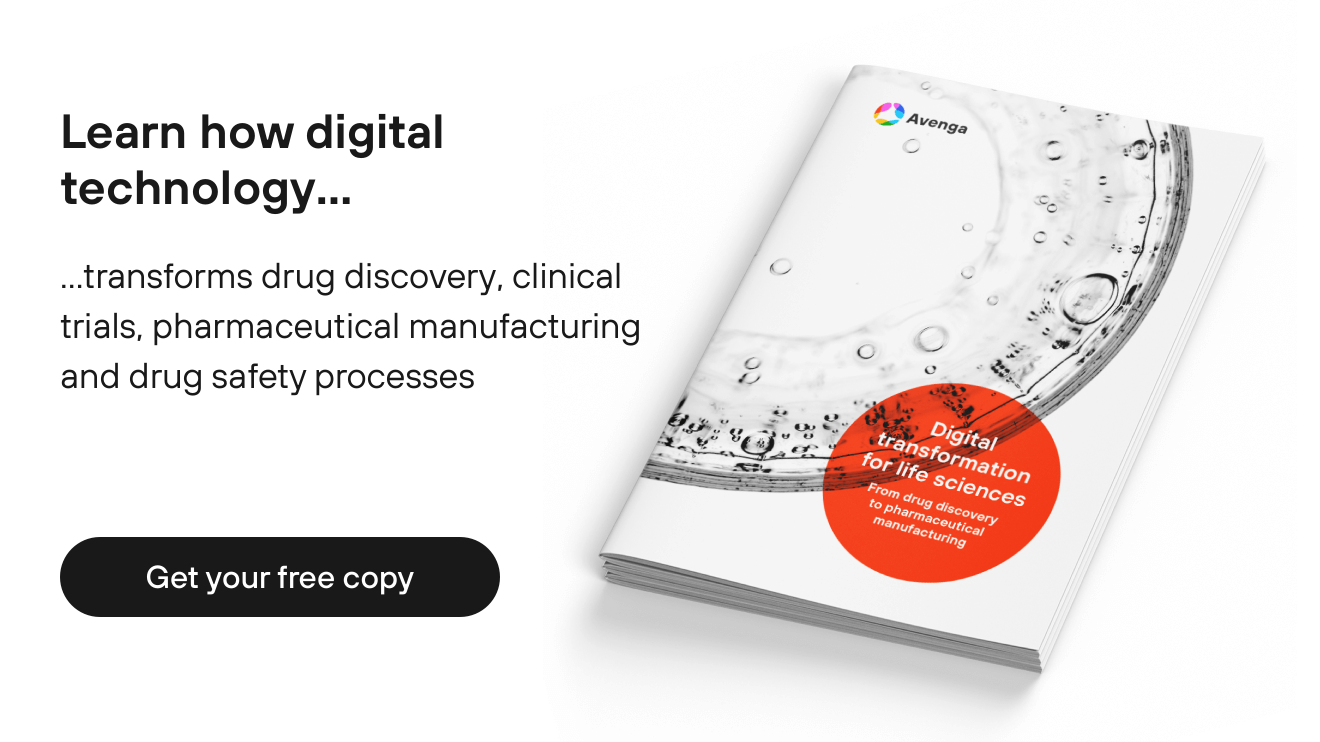How to choose the best cloud platform for AI
Explore a strategy that shows you how to choose a cloud platform for your AI goals. Use Avenga’s Cloud Companion to speed up your decision-making.

Let’s be honest. Drug commercialization with a high ROI is a thorny path. If it was so easy, everyone would be doing it.
Igor Kruglyak, Sr Advisor at Avenga
Digital technology for drug commercialization helps to transform drug development efforts into the top drugs on the market with powerful commercial potential. For example, an integrated drug commercialization solution connects different functions and ensures data integrity, allowing all the stakeholders to access the single version of truth from a centralized data repository. A coordinated approach to drug commercialization becomes a distinct mark allowing a customer-oriented strategy to turn into action.
Drug commercialization software helps to ensure an integrated and seamless experience for pharmaceutical organizations, sales, marketing, and other functions. Coordinated Customer Management and CRM platforms, document management systems, and data science help to foresee the trends in pharmaceutical product sales and provide the data that can lead to life-changing business decisions. By utilizing the full potential of collected data, pharma providers can see things other companies cannot see.
Digital tools for drug commercialization are effective foundations to accelerate the drug development lifecycle and speed up the overall time to market. They help in creating and mass-producing life-saving drugs in a short period of time and at affordable prices. They also simplify workflows and foster effectiveness, making compliance easier and security stronger.
The biggest advantage of software for drug commercialization is in identifying when and where the drugs will sell the best. Data science helps to produce the right products at the right time, thus helping life science organizations to meet the patients’ needs.

The life sciences industry has shown continuous growth over the last 15 years which has been driven by an amplified demand from a larger number of elderly people and a growing middle class in third-world countries. It is anticipated that life science companies will benefit from this increasing demand on pharmaceutical products and continue to evolve. In spite of the industry growth, pharmaceutical profits have declined over the last 7 years and this trend is expected to continue. The reasons behind declining profits are the increasing competition from new players, a greater number of generic drugs released to the market every year, and increasing regulatory and governmental pressure.
The pharmaceutical market is getting more complex with higher market competition, tense regulations and greater customer expectations. It calls for orchestration, coordination, agility and speed.
Life science organizations are seeking digital tools that can provide end-to-end data management capabilities, including data acquisition and integration, document maintenance, security and harmonization. 
Coordinated Customer Management is an integrated ecosystem that encompasses drug production, distribution, marketing and sales to achieve commercial success of a newly developed drug. It serves multiple parts of the life science business. Coordinated Customer Management helps to harmonize confusion between the use of different technologies, customer records and sales reports.
A Coordinated Customer Management platform may include a CRM, planner, appointment scheduler, VoIP and other functionalities to connect sales, marketing and other functions and better organize their interactions with physicians and doctors, building trust and improving drug sales.
For pharma drug commercialization, Coordinated Customer Management helps medical representatives track the sales of a product (drugs, equipment, etc.) and cooperate with different healthcare providers and healthcare organizations. Salesforce.com can be used as a platform for Coordinated Customer Management and additional custom functionality can be developed to extend its functions. In addition to that, an iOS and Android application for smartphones and tablets can be built for sales representatives to use in the field.
Additionally, Coordinated Customer Management helps to anticipate the doctors needs and organize sales and marketing activities accordingly. It can provide intelligent recommendations to sales managers and advise on the best action to take.
A Coordinated Customer Management platform for pharmaceutical sales representatives supports digital engagement and provides the capacity to build complex marketing campaigns and personalize the communication between sales reps and doctors.
Further, a Coordinated Customer Management platform can be integrated with a marketing automation system. The system can also be integrated with billing software and other tools and services.
Benefits of coordinated customer management for drug commercialization
A custom-built relationship management platform can help you harmonize clunky business processes and establish deeper relationships with healthcare and medical professionals, along with decreasing your expenses.
Here are some examples of benefits from the usage of Coordinated Customer Management:

87% of surveyed pharmaceutical executives intend to amplify their use of analytics to target spending and improve the ROI
Source: Accenture
Big pharma collects enormous amounts of information on everything from how a pharmaceutical product is sold at a particular pharmacy to why a particular physician prescribes one drug versus another. Predictive analytics along with business intelligence platforms can help marketing and sales professionals analyze the data that is coming in and segregate the needed information for research.
What is more, data science helps to make precise forecasts and predictions regarding pharmaceutical sales in the weeks and months ahead. There are various factors that can influence the number of sales including promotions, competitions, holidays, seasonality, and locality.
With the help of data science, pharma drug reps can conduct a deep correlation analysis and have powerful tools for time series forecasting.
→ Avenga data science to help fight COVID-19 with research for Kaggle community initiated by the Roche Data Science Coalition.
Benefits of utilizing big data for drug commercialization:

82% of documents are signed within a day
Source: DocuSign
An Electronic Document Management System (DMS) for drug commercialization, product launch and post-market phases helps to centralize all the documents about the drug, including information about:
The DMS for drug commercialization also contains Electronic Medical Records (EMR), which help to achieve:
Benefits of electronic document management system (DMS) for drug commercialization
Now that we’ve discussed several ways and types of digital technology devices that pharmaceutical companies can use in drug commercialization, here are the benefits that the use of a DMS brings:
→ A concise overview of what Data Governance is and why it matters to business.

$29.9 billion is the total annual cost of marketing drugs, prescription medicines, disease awareness campaigns, healthcare services, and lab testing
Source: Jama Network. “Medical Marketing in the United States, 1997-2016”.
5 to 1 ROIs deliver online direct-to-consumer marketing
Source: US National Library of Medicine, National Institutes of Health
70% of pharma executives identified are mastering multichannel marketing as a top strategic priority
Source: Accenture
It’s not a secret that spending on drug marketing is much higher than on R&D. Medicine marketing activities shape public and physician beliefs about the benefits and harm of prescription medicines and the benefits of laboratory testing. Pharmaceutical marketing influences patients’ and doctors’ behaviors and choices and they have a significant influence on total healthcare spending.
With a multi-channel marketing automation system, life science organizations are doing away with the restriction of only one or two channels to contact target patients. The marketing automation system helps to identify which channels are working best for drug commercialization and then streamline the patient engagement journey accordingly.
A multi-channel marketing automation system helps to organize medication commercialization efforts and systematize on-site messaging, ads, SMSs and direct emails. Pharmaceutical organizations can build and strengthen the image of the medication as well as build rapport with doctors, pharmacies and patients by tracking how they react to your messages, and then you can follow up with them appropriately.
Moreover, marketing automation systems can be integrated with a CRM in order to fulfill specific scenarios for drug sales and marketing.
Benefits of multi-channel marketing automation system for drug commercialization

Appointment schedulers whisk away the manual repetitive work associated with maintaining schedules by drug sales representatives. It helps to accommodate emergency bookings with doctors and physicians, and can reschedule and rearrange appointments on short notice. Appointment scheduling apps also prevent double-booking and over-booking.
Benefits of appointment scheduling apps for drug commercialization
Digital technology helps pharmaceutical and life sciences organizations to develop the commercial potential for the newly developed drugs and transform them into the best-selling products on the market that benefit not only the researchers and sponsors, but also all of humankind. Avenga has the domain knowledge of the tools used for drug commercialization, and also the experienced tech professionals that are able to produce outstanding results.
* US and Canada, exceptions apply
Ready to innovate your business?
We are! Let’s kick-off our journey to success!